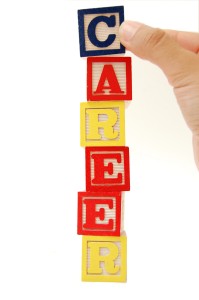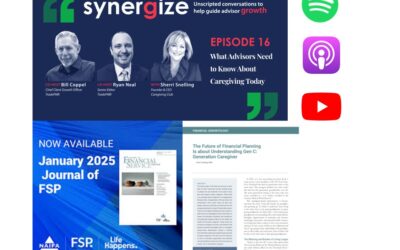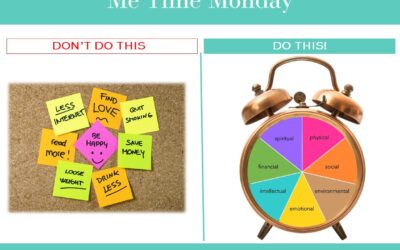 Labor Day seems like an opportune time to highlight the nation’s largest volunteer health care workforce: America’s 65 million family caregivers. With seven out of 10 caregivers working full or part-time, more employers are having to address a shift in employee lifestyle needs from child care to elder care.
Labor Day seems like an opportune time to highlight the nation’s largest volunteer health care workforce: America’s 65 million family caregivers. With seven out of 10 caregivers working full or part-time, more employers are having to address a shift in employee lifestyle needs from child care to elder care.
Earlier this year, I spoke at a Boomer Summit conference about employers and the best practices for working caregivers. I started with the famous logo from the AMC series Mad Men (Don Draper in silhouette, cigarette smoldering) with the headline, “The end of an era.”
Yes, the TV drama series based on life in the ‘60s and ‘70s ended its run this spring but we are also experiencing the end of one era and the dawn of another in offices, factories and businesses across the country as the rising tide of Sandwich Generation caregivers juggle life as working moms and dads while now also caring for older parents.
Since the ‘60s the needs and lifestyles of the American worker have continuously evolved and many employers have responded with the types of benefits and services to support those needs. When women entered the workforce in record numbers in the ‘70s and ‘80s, more child care services became the norm.
Today with women comprising about half of the U.S. workforce and most boomers postponing retirement, workplace issues are no longer about just child care but more often about elder care as well. Currently, 15 percent of the entire U.S. workforce is performing their first job at their workplace then performing their second job caring for an older loved one when they get home. By 2020, one in five workers will be over the age of 50 – the age of a typical Sandwich Generation caregiver who will help children facing looming college costs while also managing the needs – physical, emotional and financial – for older parents.
“My employer’s program to support caregivers was a lifeline,” said Matthew Skahill, associate director, scientific liaison for Astellas, a pharmaceutical company headquartered in Northbrook, Ill.
Skahill, age 51, found himself with one daughter at college abroad, another daughter gearing up for college applications and an aging and ailing father with Parkinson’s disease who lives in Missouri while Skahill navigates caring from a distance in Colorado.
The program launched by his company last year, includes a robust set of benefits including usage of a professional geriatric care manager to meet with the elder, assess the needs, create a care plan and then walk the family through the options for community services and other help. While this type of service is not new, a care manager network program from UnitedHealthcare has been around for more than 30 years, Astellas included other benefits Skahill found invaluable.
“I was able to access the identify theft protection service for both my daughter in London, who had suspicious activity on her credit card, as well as my younger daughter,” explained Skahill. He is planning to access the college financial counseling service of the benefit to prepare for his second child entering college soon and to look for additional help with his older daughter, who is pursuing a college degree in London. And, Skahill and his father are discussing having a legal document review to ensure everything is in order based on his father’s latest wishes and ongoing caregiving needs.
According to 2013 Pew Research report, nearly half (47 percent) of all adults in their 40s and 50s are considered the Sandwich Generation with a parent over age 65 and at least one child under age 18 or an adult child still receiving financial assistance from mom and dad. In addition, the report stated one in seven Sandwich Generation caregivers are providing financial support for both their children and their aging parents.
“We take a long term vision of our employees – they are as important to us as the products we create or the patients we serve with our products,” said Collette Taylor, senior vice president of human resources and facilities management for Astellas. “Our employees are an investment and since our workforce tends to skew slightly older than the national average, we took a holistic view of their lifestyles and our role in helping them be healthy, financially secure and happy. This program is not just a source of pride for us, it also makes smart business sense.”
While the $31 billion a year MetLife and the National Alliance for Caregiving estimated U.S. companies encounter based on lost productivity is one rationale for companies to institute caregiver support for its employees, impact to the bottom line is not always about productivity, it can also be about flexibility.
 A study published in the Academy of Management Journal, found companies that employ workplace flexibility such as job sharing, phased retirement of older workers, flex hours, telecommuting and other benefits for caregivers may have some upfront costs but ultimately realize a return on the bottom line. One study tracked the announcement of new work-life balance policies by Fortune 500 companies and found those firms’s stock prices rose .36 percent on days following these announcements suggesting investors believe these policies to be profitable investments. The White House Council of Economic Advisors Report (June 2014) showed 52 percent of workers said they could do their job better if allowed a more flexible schedule.
A study published in the Academy of Management Journal, found companies that employ workplace flexibility such as job sharing, phased retirement of older workers, flex hours, telecommuting and other benefits for caregivers may have some upfront costs but ultimately realize a return on the bottom line. One study tracked the announcement of new work-life balance policies by Fortune 500 companies and found those firms’s stock prices rose .36 percent on days following these announcements suggesting investors believe these policies to be profitable investments. The White House Council of Economic Advisors Report (June 2014) showed 52 percent of workers said they could do their job better if allowed a more flexible schedule.
LifeCare, a work-life services company that provides the caregiver programs to several Fortune 500 companies with its 61,000 clients, has benchmarked utilization of its caregiver services and found it has almost doubled from 2011 to 2014.
“This increase in using the expertise of a professional geriatric care manager showcases the growing need for working caregivers to receive some support through their employer,” said Bert Wachtelhausen, senior vice president of sales, client services and marketing at LifeCare. “These type of services are investments now in employees which pay off in long-term dividends for a company’s bottom line.”
Another organization that recognizes the caregiving role of its faculty and employees is Emory University. For more than 20 years, this academic institution has offered flexible leave policies, long term care insurance, research and referral services for elder care help, each year adding more to its caregiving services menu. Today, caregiver workshops and access to a professional geriatric care manager network have high utilization rates among caregiving faculty and staff. The growing demand for caregiver guidance recently led Emory University to add an Onsite Care Consultant.
“Caring for and worrying about an older parent is often hard, especially if they do not live nearby,” said Skahill. “To know my employer not only understood what I was going through but provided services to help me through this time in life, makes a huge difference in being able to manage it all. I feel like they are sincere in wanting to make a difference in my life.”
Note about the author: Sherri Snelling hosts the monthly “Caregiver Network” webinars for LifeCare’s 61,000 employer clients and recently spoke at the employee launch event of the Astellas caregiver benefit program. [This article originally appeared on PBS Next Avenue.org]
©2015 Sherri Snelling




0 Comments